The original version of this paper was initially published in Spanish by: https://disidentia.com/back-to-the-ussr/
The 80th anniversary of the Soviet victory at the Battle of Stalingrad was commemorated in Volgograd. A decisive victory, because the surrender of General von Paulus' 6th Army marked the beginning of the German defeat on the Eastern Front and in the Second World War. The city, which was renamed Stalingrad in 1925 and renamed Volgograd in 1961, could regain its old name and become "Stalin's city" again at the request of veterans of the battle. According to TASS, the regional governor Andrei Bocharov has formed a civic council to study public opinion on the matter. In the midst of the Soviet ferment, a new monument to Stalin, a bust, was unveiled on Wednesday near the Battle of Stalingrad Museum in the city, next to the busts of Soviet Marshals Georgy Zhukov and Alexander Vasilevsky - the "architects of the Stalingrad victory", as Volgograd Regional Duma Speaker Aleksandr Bloshkin said. During the ceremony, a guard of honour laid flowers at the three monuments. This is not the first monument to the tyrant in Volgograd - in December 2019, a two-metre concrete bust was unveiled next to the local Communist Party headquarters to mark the 140th anniversary of Stalin's birth.
Huge posters with Stalin's image were placed on some buildings, giving the impression that the city had gone back in time to the middle of the last century. The cult of Stalin has made a strong comeback in today's Russia, with a regime that evokes the Soviet past with nostalgia above all else. Despite this, much of the Western "Right" seems completely blind to Putin's neo-Sovietism. Faced with those images, defenders of the Kremlin's supposed conservatism repeat that this is Stalingrad and that Russians are simply celebrating their victory in the Great Patriotic War. The hoisting of Soviet flags or the repositioning of statues of Lenin, even though the leader of the October Revolution had nothing to do with the Second World War, would also be part of this endless bag of tricks. However, to dispel any doubts that the new Russia looks very much like the old one, one need only look at the new street map that the Russian occupiers are imposing in Ukrainian cities under their control. Political scientist Sergej Sumlenny, whose academic work focuses on Eastern Europe, gives as an example the occupied city of Melitopol. Evidently, in many cases the change of street names is an attempt to remove all Ukrainian traces from the city, but the point is that the new names refer to Stalinist generals and henchmen and historical figures of communism. This is a return to the times when these places belonged to the Soviet Union.
Thus, the street dedicated to Pilip Orlik, author of the first Ukrainian Constitution, has been renamed after Vasily Konstantinovich Blücher; commander of the Red Army during the Russian Civil War and later military governor of the Far East region, where he rose to the rank of Marshal of the Soviet Union in 1935. When the Red Army purges began in 1937, Blücher was one of the generals involved in the indictment of Marshal Mikhail Tukhachevsky. Safe from the purge, Blücher returned to the Far East and commanded the Soviet forces that engaged the Japanese in the Battle of Lake Khasan (July-August 1938). The Soviets were victorious, but Moscow considered the casualties suffered to be excessive, which led to his fall from grace. The NKVD accused him of espionage for Japan and arrested him on 22 October 1938. Blücher refused to confess and was tortured, dying in prison on 9 November.
Another Stalinist who has returned to the streets of his hometown is Izrail Iakovlevich Dagin. A member of the Red Army since 1917, Dagin joined the Cheka and the Communist Party in 1919. His effectiveness in the Soviet organs of repression (Cheka-OGPU-NKVD) earned him two Cheka/GPU badges of honour in 1924 and 1932 and several promotions, up to the position of a third-degree State Security Commissar. Dagin was active in the North Caucasus and in November 1938 was promoted to head the 1st Section (protection of leaders) of the Main State Security Directorate. Like many other Chekists, Dagin met the same fate as his victims. Arrested in May 1938, he was sentenced to death on 21 January 1940 in Moscow and executed the following day.
International socialism also has its place in the new street map, and the streets once dedicated to Oleksandr Dovzhenko, an Ukrainian pioneer of the Soviet cinema, and Yaroslav the Wise, Grand Duke of Kievan Rus, have been renamed after Karl Liebknecht and Rosa Luxemburg, founders of the German Communist Party.
Speaking of the coup d’état of Louis Bonaparte, who sought to emulate Napoleon, Karl Marx said that “history happens twice: the first time as a great tragedy and the second time as a miserable farce”. Putin is not Stalin or Peter the Great, the Russian army is not the unstoppable Red Army, nor is today’s Russia the Soviet Union. The attempt to resurrect the Soviet empire is on the way to becoming a miserable farce, but it is already a great tragedy.
Read also
The Wall
The Berlin Wall fell, but the world is once again divided by an invisible wall. The West that faced the Cold War and bloc politics was stronger than the West we live in today, with disastrous policies and a complete lack of faith in ourselves, but still no one jumps over the wall to the other side.
Álvaro Peñas
Dante Augusto Palma: Milei is fighting the cultural battle by defending the “ideas of freedom”.
Dante Augusto Palma is a professor of Philosophy and Doctor of Political Science, and a researcher on issues related to political philosophy, philosophy of law and philosophy of communication.
Álvaro Peñas
The Martyrdom of the Ulma Family
On 24 March 1944, German police raided the Ulma family farm in Markowa, Poland.




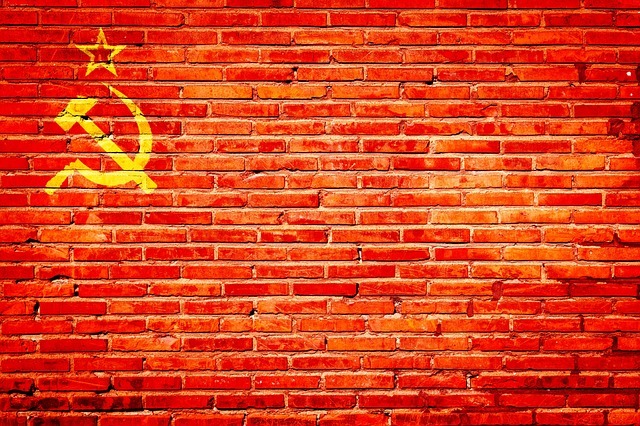

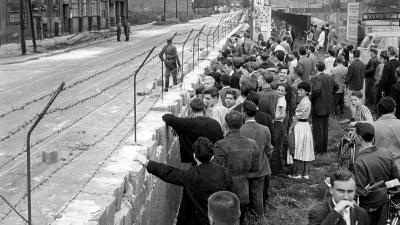

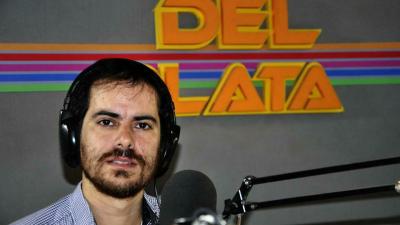

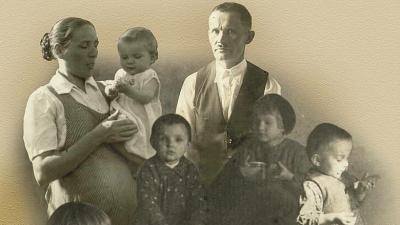

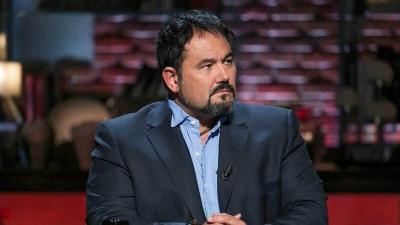

Comments (0)